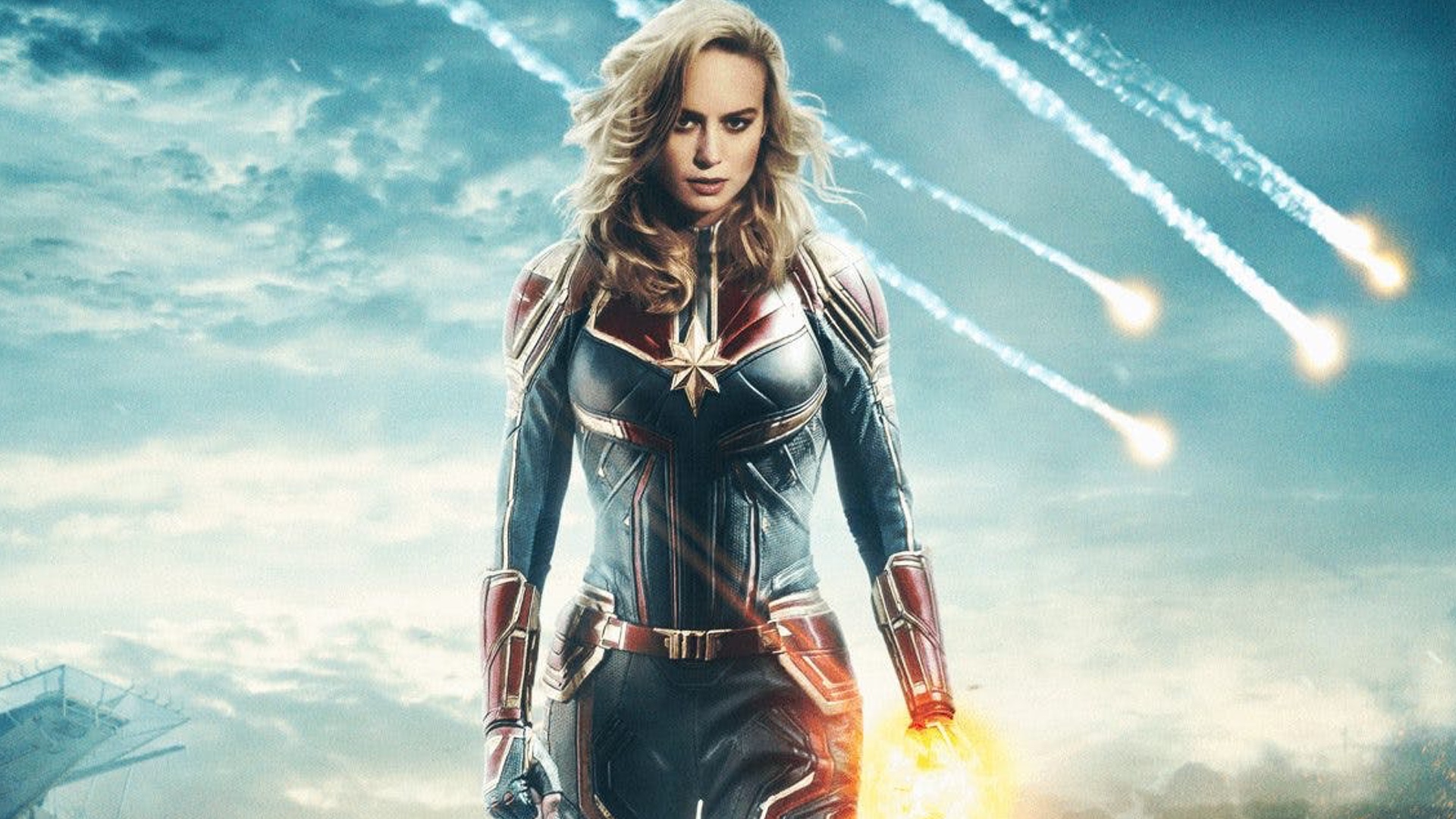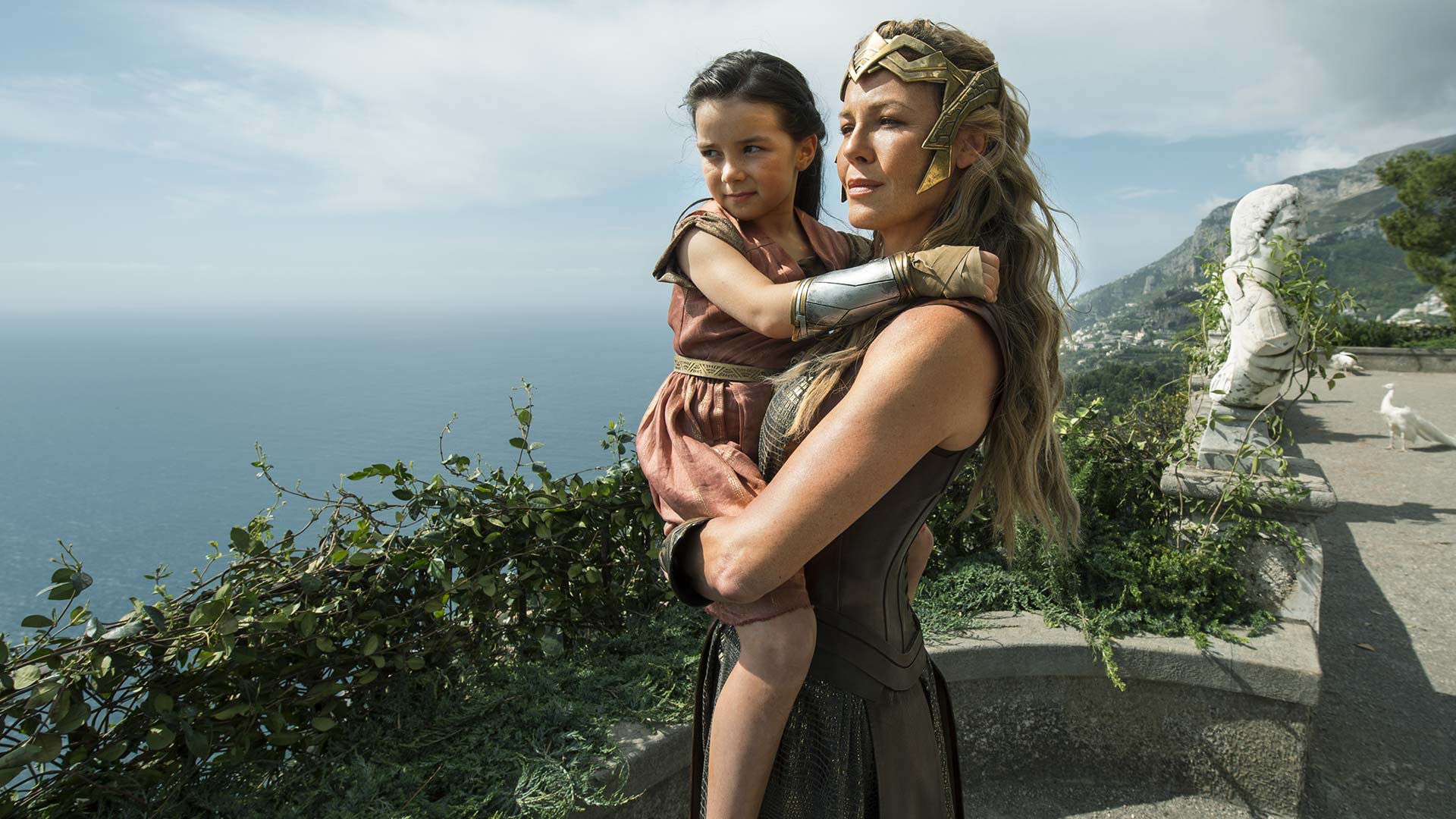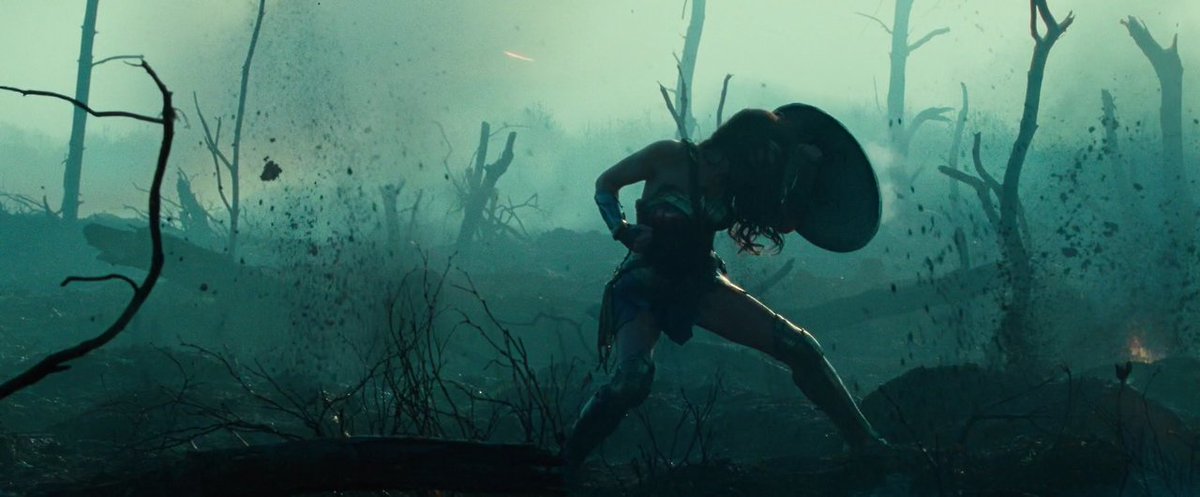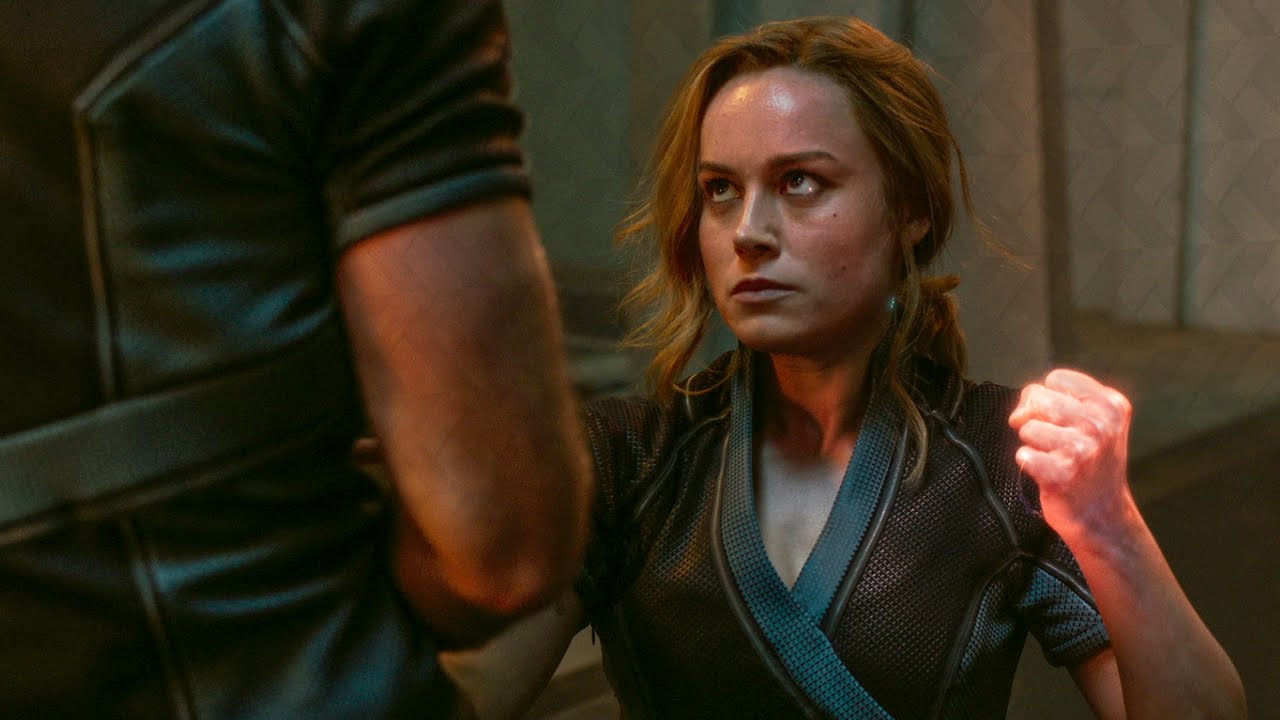Why Wonder Woman Is a Far Superior Movie to Captain Marvel
Patty Jenkins’ Wonder Woman hit the big screens in 2017. It was the first female-led superhero movie of the post-Batman Begins era (AKA the era where people started taking comic book movies seriously). The film etched itself in the history books and accomplished what many thought to be impossible: A female-led superhero movie, directed by a female, grossing over $US 821 million globally and universally lauded by critics and fans alike, inspiring an entire generation of young girls in the process.
Fast forward to 2019 and Captain Marvel, Marvel Studios’ first female-charged comic book movie (to be honest, I’m quite surprised it took Kevin Feige and gang this long) is replicating the success of the DC movie. It’s only been two weekends and the film has already raked in more than $US 760 million at the global box office, hopefully putting to bed the old school Hollywood studio mentality that women-centric films don’t sell.
Just like the DC film centred around the Amazonian goddess, Captain Marvel is an important movie (it needs to exist). It’s also a fun movie filled with exciting action sequences, great comedic beats and meaningful twists nobody could’ve predicted heading into the movie. It’s also a movie that showed us just how powerful the titular character is and why The Avengers need her by their side if they are to stand even the slightest chance of taking down Thanos.
But Captain Marvel is not a great movie. And unlike Wonder Woman, it doesn’t feel special either. But why? Well, that’s the million dollar question, isn’t it? What made Wonder Woman an unforgettable, eventful cinematic experience and why did Captain Marvel fall short of it?
The structure
It all starts with the screenplay and as far as superhero origin stories go, there’s no denying that the writers of Captain Marvel (Anna Boden, Ryan Fleck and Geneva Robertson-Dworet) definitely took an unconventional and bold route. Instead of starting at the beginning, we’re thrown right in the middle, with Vers (Brie Larson) as a Kree soldier with a past that even she’s unaware about. This mysterious past life haunts her dreams and forms one of the overarching storylines of the movie, as Vers sets off on a journey to find the missing puzzle piece.
This is an interesting concept and if executed well, could’ve been one of the more refreshing comic book origin stories ever made. But what we do get, is slightly problematic. And that’s due to the fact that our lead character doesn’t quite have a complete arc. We don’t feel Carol Danvers’ journey because beyond some quick flashes, we only learn about her somewhere towards the end of the movie and even then it plays more like a highlight reel.
But a truncated arc of Carol Danvers would be okay, if the journey of Vers — Carol’s Kree name — is a more wholesome one. It isn’t. When we first meet Vers she’s already pondering about her past and questioning her superiors. We don’t see her at her Kree-best! It’s as if the film completely glossed over a couple of chapters. We don’t see the beginning of Carol Danvers, nor do we the beginning of Vers, causing a disconnect between the audience and the protagonist throughout the film. (The writers and helmers, Boden and Fleck do pen a beautiful arc for the Skrull leader Talos, though.)
When compared to Captain Marvel, there’s no denying that Patty Jenkins and her team of screenwriters take a far more traditional route with the Wonder Woman screenplay, structurally speaking. After the universe connecting prologue, we start our journey on the hidden Paradise Island, Themyscira.
We meet Diana Prince as a spunky little kid who wants to learn to fight, despite her mother, Queen Hippolyta’s wishes. Then we see her for a bit as a teenager before she eventually grows into the beautiful Gal Gadot. Next, we meet Steve Trevor who tells them about the war that’s happening beyond the magical force field that shields the island. And then Diana and Steve go on their journey yadda yadda yadda.
While this is a basic method of storytelling, it allows us to connect with Diana on a more personal level. To understand her doubts, feel her frustrations, taste her will to fight, roar with her when she’s confident and shed tears when she questions herself. It’s as though we know her since day one… because we do.
Directorial Vision
With Patty Jenkins (who made the critically acclaimed Monster a lifetime ago) at the helm, Wonder Woman feels like a piece of art crafted by a director with a strong voice, besides the 3rd act of course. The film has a certain texture to it. Jenkins’ colour grading along with the production and costume design made the World War II period piece feel authentic. It’s a stylish picture with flowery editing and a bombastic musical score (by Rupert Gregson-Williams) you hope for from a superhero movie.
Captain Marvel on the hand is just another movie. It’s a movie that I enjoyed very much so, but besides the sprinkle of beautiful moments (Carol Danvers and Nick Fury doing the dishes comes to mind and so does the scene where Danvers stands up against the Kree Supreme Intelligence), the movie feels unremarkable, like it’s made in a factory and sent out to theatres on a conveyor belt. This comes as a surprise given directors Anna Boden and Ryan Fleck’s indie background.
It’s easy to point your fingers and say, “that’s Disney! Of course, it’s going to feel that way,” but the likes of Iron Man, Iron Man 3, the Captain America trilogy, Guardians of the Galaxy, Thor: Ragnarok and Black Panther say otherwise. While these movies too had to manoeuvre within the given parameters and hit certain plot points, they still had a more singular voice behind the cameras.
Raw emotions and iconic moments
Think about the exciting battle sequence that unfolds on the beach of Themyscira and the painful way in which it ends — with Robin Wright’s Antiope taking a bullet through her chest. What about the quiet scene where Steve Trevor and Diana Prince slow dance that made your heart go pitter patter; or the overwhelming scene at the climax where Steve Trevor professes his love for Diana before sacrificing himself for the greater good; or THE SCENE — the rousing, fist clenching, blood pumping scene — that will no doubt go down as classic: No Man’s Land. Each of these moments made you feel something. I remember leaving the cinema feeling giddy. I wanted to experience the film again immediately.
Captain Marvel got me excited for what lies ahead (well, even more excited) but it wasn’t an unforgettable experience in its own right. It lacked poignant, human moments. Yes, the film does explore the relationship between Carol Danvers and her best friend, Maria Rambeau (Lashana Lynch) who thought Danvers died six years ago. These sequences are moving, but they’re never given the time and space to simmer and bloom into something truly powerful.
I very much like the sequence towards the end where Captain Marvel faces the Supreme Intelligence (Annette Bening) and unleashes the fiery beast within her. This sequence is intercut with scenes of Carol Danvers’ past in various stages of her life, picking herself up and dusting herself off. The filmmaking on display is great, but even here, there is some questionable writing. Why did the writers need to include the suppressive “nicotine patch” that Danvers rips off? Wouldn’t it have been better if the writers went with something more thematically significant, like Carol realising that uncorking the bottle letting her emotions flow is the key to realising her full potential?
Themes
Captain Marvel, once again, has an interesting theme in concept. Throughout the movie, Vers is told by her Kree superiors, particularly Jude Law’s Yon-Rogg that she should control her emotions better. Only in suppressing her emotions can she remain focused and reach her full potential. It’s a notion that ties back to women in the real world who are constantly labelled as “too emotional.”
“Why are you so angry today? You must be on your period.”
Wouldn’t it have been great had the “twist” in the end relate back to this? To show us and millions of girls (and guys) worldwide that they don’t have bottle up their emotions. That it’s important to be yourself and let it flow. The whole “nicotine patch” element does nothing but weakens the theme.
Wonder Woman, on the other hand, wonderfully weaves its feminism subtext with the meat of the narrative. There are laugh out loud lines that are casually dropped during conversations — “It’s concluded that men are integral for reproduction, but unnecessary for the purposes of pleasure,” and also, “where I’m from that’s called slavery.”
There are also moments that slickly tackle heavier themes such as mansplaining and how women are dismissed and disregarded simply because of their gender (when Diana Prince enter the conference room, the officials say “what is this woman doing here?”). And of course, the iconic sequence where Diana climbs up the stairs to No MAN’S Land (a scene that brought back memories of Return of the King where Eowyn kills The Witch King). Wonder Woman is a film that can be chewed on for days.
The post Why Wonder Woman Is a Far Superior Movie to Captain Marvel appeared first on Lowyat.NET.
from Lowyat.NET https://ift.tt/2Y9JKzC
Labels: Lowyat




0 Comments:
Post a Comment
Subscribe to Post Comments [Atom]
<< Home